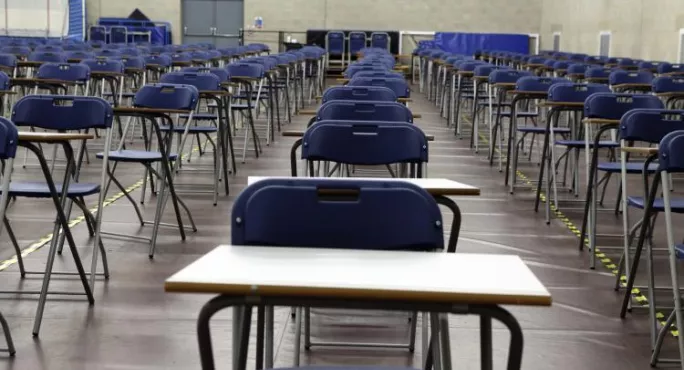Tens of thousands more teenagers need to score good grades in GCSE English and maths to put the nation on a par with the best performing countries in the world, according to research.
In maths particularly, England has work to do to match the average performance of youngsters in places such as Singapore, Hong Kong and Japan, the Education Policy Institute (EPI) study found.
The findings, which come in the week that teenagers receive their GCSE results, show that England’s pupils should be aiming to get new grade 5s in English and maths, the EPI said, rather than 4s - which are broadly equivalent to C grades under the traditional grading system.
Researchers used data from international tests in maths and reading and last year’s GCSE results to compare performance between nations.
It concludes that in maths, students in England need to score around two-thirds of a grade higher on average to match the performance of youngsters in Singapore, Hong Kong, Macao, Taiwan and Japan.
It means that under the traditional A*-G grading system, which is being phased out, an extra 96,000 pupils would have to score the equivalent of at least a B grade, with the number of low-performing pupils (those failing to get a C) falling by 60,000.
In English language, the average grade would also have to increase slightly, with an extra 42,000 youngsters scoring the equivalent of A*-B grades in the subject, in order to match the highest performing countries in native language reading - Singapore, Hong Kong, Canada, Finland and Ireland.
The numbers failing to get a C in English language would need to drop by 42,000.
Under the biggest shake-up of exams in England for a generation, traditional A* to G grades have been replaced with a 9 to 1 system, with 9 the highest mark.
English and maths - key GCSEs for all teenagers - are the first to move over this summer, with other subjects following over the next two years.
The grading switch, part of wider reforms designed to make GCSEs more rigorous and challenging, has been introduced in a bid to allow more differentiation between students, particularly among the brightest.
The government has said that a grade 4 will be considered a standard pass, and a 5 a “strong” pass.
Students who score at 4 will not have to continue studying maths and English after age 16, but schools will be judged against the proportion of pupils scoring at least a 5.
Overall, the study concludes that in order to match the highest performing countries in the world, England’s pupils must, on average, gain a 5 in English and maths in the future. This is broadly equivalent to a high C or low B under the old grading system.
David Laws, EPI executive chairman and former Lib Dem schools minister, said: “This analysis highlights the gulf between education outcomes in England and the performance of the world’s best education nations.
In certain subjects, such as maths, England needs both to significantly raise the number of top performers and almost halve the number of low performers if it is to compete with the world’s best.”
He added: “Our analysis suggests that the Department for Education is right to be refocusing our education system on students achieving the new “strong pass” of a grade 5.
“The old “C” grade is not an adequate national aspiration if England wants to compete with top education nations.”
Paul Whiteman, general secretary of the NAHT headteachers’ union said: “This report shows that England’s obsession with structural change, under a succession of governments, has had little impact on either standards or equity. Policy makers have routinely pursued the wrong priorities.
“The highest performing school systems are those that invest in their teachers and that respect and value education.”
Want to keep up with the latest education news and opinion? Follow Tes on Twitter and like Tes on Facebook




